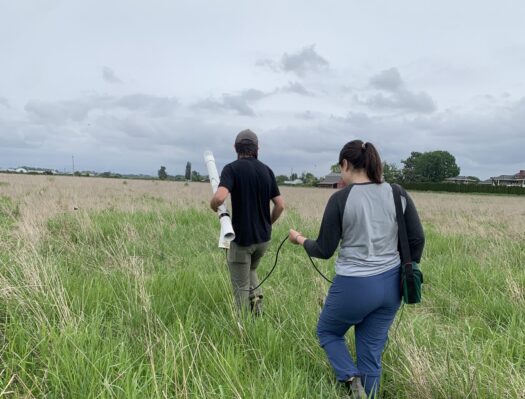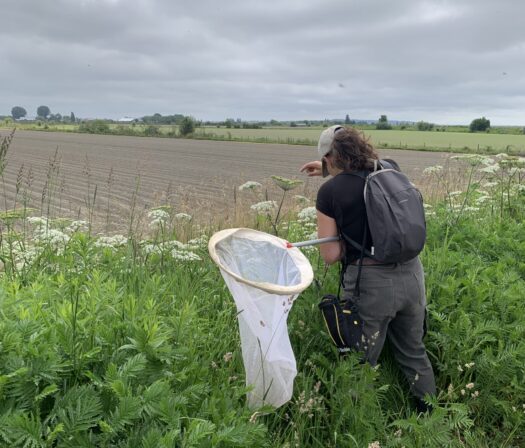Academic Research Partnerships
UBC Research Partnership
DFWT is partnered with the University of British Columbia to help students conduct valuable research surrounding on-farm biodiversity and soil-health. Current research is being conducted on Grassland Set Asides, Hedgerows, and Field Margins, with a focus on insect and pollinator communities.
The role of insect community composition in predicting pest control rates and organic matter decomposition
PhD student Matt Tsuruda is researching insect community composition in grassland set asides to determine their role in predicting pest control rates and organic matter decomposition. By using insect community composition, Matt aims to simplify the measurement of crucial metrics of ecosystem health.
Matt's approach involves using different methodologies, such as insect vacuums, pitfall traps, and decomposer traps to capture a diverse range of insects. Each trap offers
unique insights into specific insect populations, ensuring a comprehensive understanding of the entire insect community.
Moreover, Matt is also investigating the connection between soil-dwelling insects and soil bulk density. By taking soil
samples, he hopes to uncover their potential as indicators of soil health and density.




Bumblebee nesting habitats and the diversity of local bee colonies
Sarah Knoerr is monitoring grassland set-asides and field margins in Delta and Richmond to identify bumble bee nest sites and determine the diversity of bumblebees found in Delta.
Sarah collects worker bee DNA to determine the size and presence of different colonies within agricultural sites. These DNA tests are performed using a small segment of a bumblebee leg.
Through her research, Sarah hopes to shed light on how we can help support bumble bee populations in our agricultural areas, along with the high-quality pollination services that they provide. Sarah is also investigating the presence of the Common Eastern Bumble Bee in Delta, which is an introduced species on the west coast that may be competing with native species of bees.
